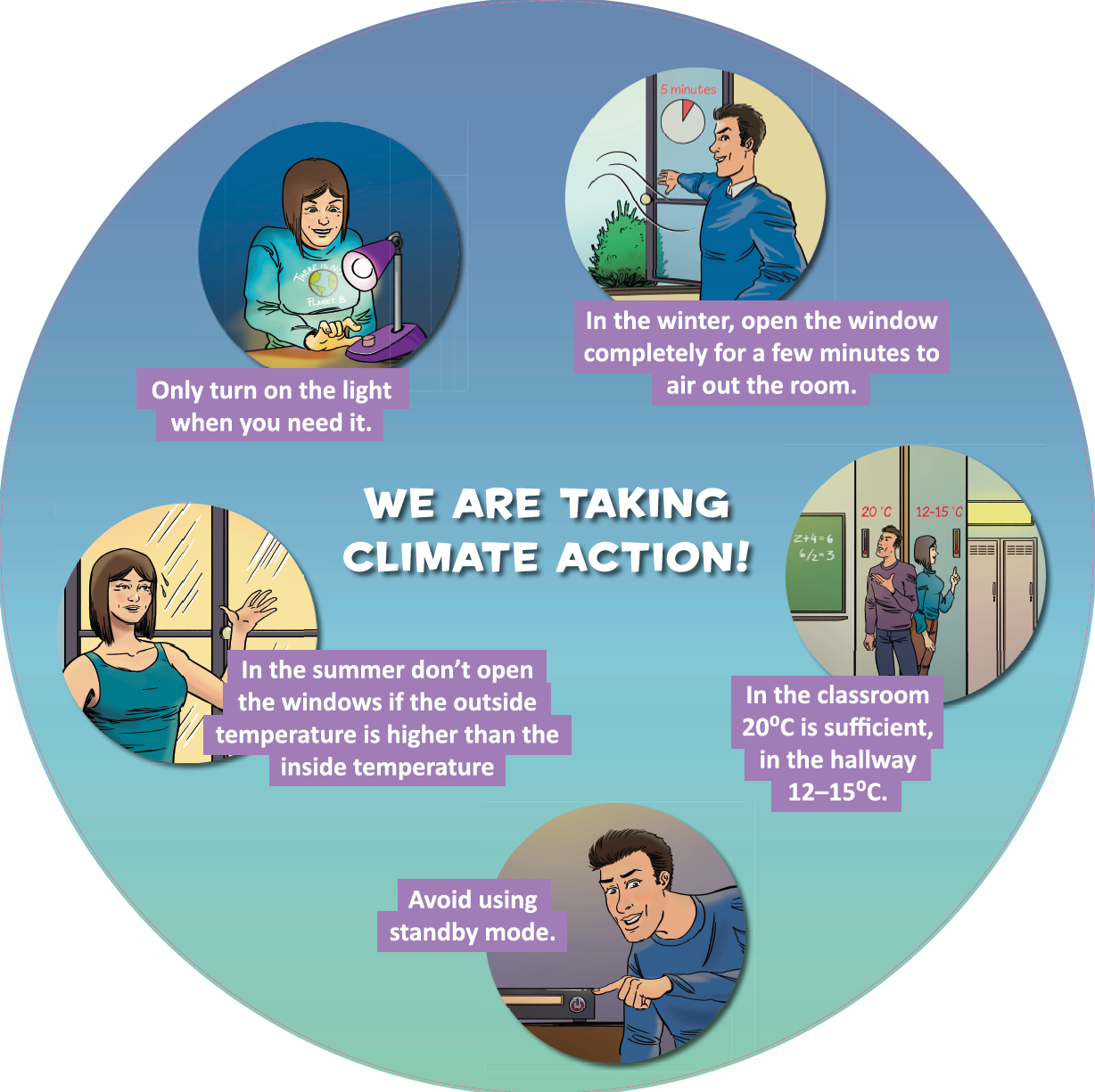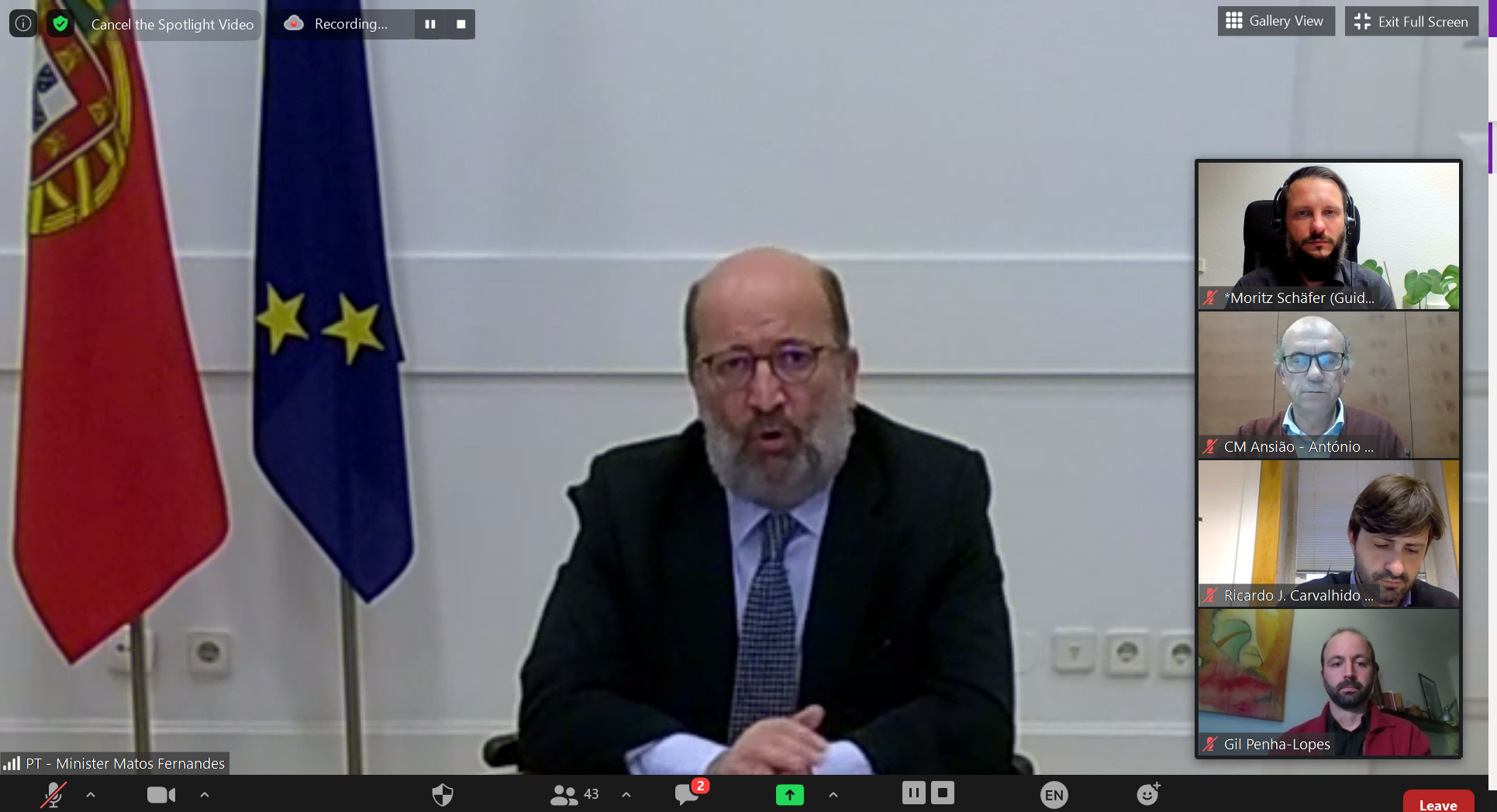Fostering Local Climate Action Finance through Vertical Collaboration
On 12 November 2020, the BEACON team conducted a virtual vertical workshop with a range of stakeholders from local and national levels on the hot topic of financing local climate action in Portugal. The main objective of this event was to empower local authorities to develop strategies for financing climate action. In addition to financing, the topics of technical training and governance of local climate action were addressed.

Participants of the workshop included Portuguese Minister of Environment and Climate Action João Pedro Matos Fernandes, who in his speech highlighted the need for “innovative solutions, new forms of (energy) production, distribution, and consumption to achieve climate neutrality.” Minister Fernandes further called out to “champion initiatives to break ground.” Mayors from the municipalities participating in the BEACON project (Ansião, Coruche, Loulé, Setúbal and Viana do Castelo) and a number of municipal technicians examined challenges faced by municipalities in the short and medium term, particularly in the light of the EU Green Deal and the current negotiations around the EU’s next Multiannual Financial Framework (2021-2027).
Further Information

In summary, the main obstacles participants identified include:
- insufficient vertical communication between different public actors on the local and national levels, namely in terms of the standardisation of climate action language and concepts
- insufficient training and reinforcement of human resources at the municipal and supra-municipal level to adequately translate national climate action objectives at the local level
- the need for more efficient management in different municipal contexts and at different scales of intervention
In regards to financing specifically, the following needs were identified:
- adequate national support: the need to anticipate and adjust procedures over time to allow for improvements and increase the efficiency of the existing lines of financing
- design programs and competitions in such a way that it is easier for municipalities to apply
- consider demand for funding programmes via dissemination, training, mentoring and experimentation measures that can be implemented before or during the application process
- encourage alignment and complementarity between policy instruments, financing lines, and respective governance solutions
The participants of the BEACON workshop also highlighted the need for the creation of municipal and inter-municipal technical offices for climate action with a view to promoting greater capacity for coordination of local structures. In line with this objective, the participants found that the Intermunicipal Communities (CIM) and/or the Regional Development and Coordination Commissions should urgently provide the human resources required to achieve this aim.
In short, climate action is a national priority in Portugal. However, the creation of public policy instruments at the national level has not yet been consistently translated to the local levels. To achieve the goals that these policy instruments define by 2050, promotion of an institutional transition as well as training for municipal and supra-municipal public actors is urgently needed. The BEACON project will continue to work towards these capacity building aims, and financing local climate action will be the topic of a BEACON national workshop in Portugal in spring 2021.
